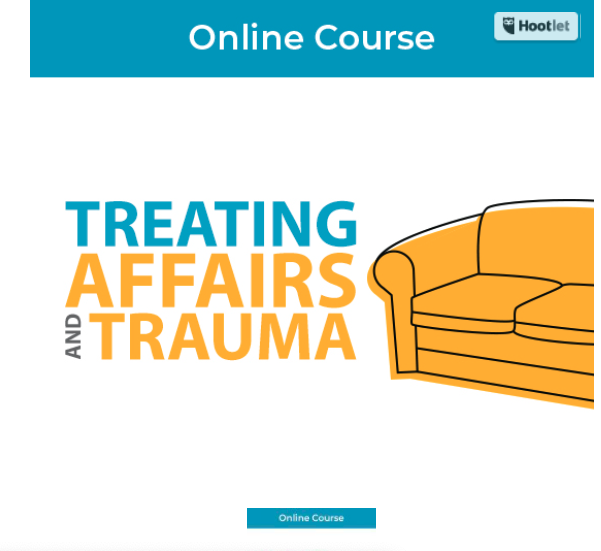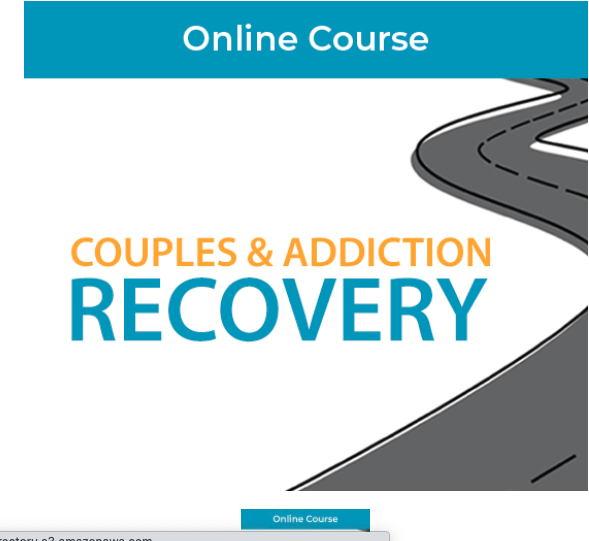Gottman Treating Affairs and Trauma
NOTE: Level 1 Training is required. $225 REGISTER NOW
Description
Treating Trauma
Dr. Julie Gottman describes the impact of PTSD on committed relationships using real examples of trauma caused by early abandonment, childhood abuse, and military combat. She demonstrates a therapeutic approach that interweaves individual PTSD treatment with Gottman Method Couples Therapy. Watch Paul and Shantel, the couple featured in our Level 1 Clinical Training and Therapy Sessions: Live videos, as they return to therapy with the Gottmans eight years later. These new films demonstrate powerful couples interventions for PTSD and trauma.
Treating Affairs
Dr. John Gottman unfolds the science behind trust and betrayal and provides the tools needed to create trust and commitment in love relationships. The Gottmans describe their impactful “Atone, Attune, and Attach” model for treating affairs. This model provides clinicians with an unbiased approach that compassionately serves both partners as they struggle to rebuild a collapsed marriage. See brand new films of the Gottmans in their clinical office engaging in intensive therapy with a military couple, a case in which the husband had an affair and suffered from PTSD following his 12 back-to-back deployments overseas. Learn the important variations in assessment and intervention techniques that empower couples to not only rebuild their relationship, but also create immunity from future betrayals.
Learning Objectives
- At the completion of this training, you will be able to:
- Compare and contrast the psychometric soundness of assessment instruments used to diagnose PTSD, including tools for structured interviews, self-report scales, and psycho-physiological assessment methods.
- Distinguish between the neurobiological changes associated with PTSD that occur in the amygdala, anterior cingulate cortex, prefrontal cortex and hippocampus.
- Evaluate the effectiveness of popular individual therapies for treating PTSD.
- Compare and contrast research studies on couples therapy methods for treating PTSD.
- Defend the practice of conducting conjoint therapy to address PTSD during couples therapy by referencing the relevant research findings on the impact of PTSD on relationships, as well as the relationship outcomes associated with individual PTSD treatment.
- Implement clinical strategies that help “surface” trauma when working with a couple with PTSD.
- Select clinical interventions that help “explore” trauma at a deeper level once it has surfaced.
- Facilitate movement from the individual to the dyad when processing a trauma.
- Teach couples how to conduct a Stress-Reducing Conversation when PTSD is involved.
- Teach couples how to conduct an Aftermath of a Regrettable Incident Exercise when PTSD is involved.
- Compare and contrast popular therapies for treating infidelity.
- Explain how the 24 steps of the “Gottman-Rusbult-Glass” cascade toward betrayal lead to a blurring of boundaries between self and potential others.
- Explain how a betrayed partner may develop PTSD as a result of their partner’s affair.
- Apply the Gottman Method Couples Therapy Assessment process with couples who have experienced an affair.
- Incorporate appropriate additional details when conducting an Assessment feedback session for treating affairs.
- Facilitate the Atonement phase of Gottman Method Couples Therapy for affairs.
- Defend the practice of allowing the hurt partner to express anger, insecurity, resentment, fear and feelings of rejection, rather than down-regulating their expression of emotion.
- Implement appropriate clinical tools to strengthen an affair couple’s Attunement to each other.
- Teach affair couples how to effectively process Regrettable Incidents.
- Select appropriate clinical interventions to deepen an affair couple’s Attachment to one another.
- Apply effective clinical strategies to help affair couples prevent relapse.
DISCLAIMER: This course is designed for clinical professionals and it exposes participants to video of therapy sessions that include discussion of topics such as domestic violence, combat violence, and complex family planning choices.
Details
Included Content
This online course includes:
- More than 17 hours of video from a recent live workshop conducted by Drs. John and Julie Gottman
- 285-page printable PDF manual with the content, assessments, interventions, and references discussed in training videos
- 165-page printable PDF of lecture slides
- Certificate of Completion from The Gottman Institute
Couples & Addiction Recovery
Description - $149 REGISTER NOW
Couples and Addiction Recovery is a groundbreaking new training for therapists, counselors, and professionals. While current models for treating couples impacted by addiction discourage any type of relational approach in early recovery, couples need help sooner rather than later. It’s time to change how we treat couples in recovery. This online course is for anyone working with couples struggling with addiction as well as couples in recovery from alcohol, drugs, and/or behavioral addictions. It draws from the fields of addiction treatment, mental health, and couples counseling and integrates current research findings with knowledge from clinical practice. It combines more than a decade of research by Dr. Robert Navarra with the Sound Relationship House model developed by Drs. John and Julie Gottman. Dr. Navarra has worked in addiction recovery for over 25 years. He holds an Advanced Drug and Alcohol Certification and a national certification as a Master Addiction Counselor through the Association of Addiction Professionals (NAADAC).
This training provides interventions and tools for a relational approach to healing that addresses three different but overlapping recoveries: the person with the addictive disorder, the partner, and their relationship. You will learn a research-based approach to help couples:
- Identify addiction
- Break through denial
- Navigate the challenging road from active addiction to recovery
- Improve conflict management skills
- Learn the difference between “codependency” and “interdependency” and how to identify and set appropriate boundaries
- Develop a relationship recovery, while supporting their partner’s recovery and strengthening their own individual recovery
- Heal from the aftermath of addiction
- Move toward wellness as individuals and as a couple
Learning Objectives
- Describe and critique the differences between the Couple Recovery Development Approach and the current most common approach in treating couples impacted by addiction
- Explain the three components of the Couple Recovery Development Approach and their roles during recovery
- Incorporate concepts and interventions from the Gottman Sound Relationship House Theory to help couples manage conflict
- Explain the impact of addiction and recovery processes on the couple relationship
- Analyze and differentiate feelings and behaviors associated with codependency and interdependency
- Explain the neurobiology of addiction and the impact it can have on individuals and couples
- Differentiate between mild, moderate, and high risks of problematic substance use and compulsive behaviors using assessment techniques
- Apply therapeutic techniques to help break through denial
- Apply interventions for helping couples manage conflict during addiction recovery
- Recognize opportunities to utilize Recovery Card Map decks to facilitate couple recovery
Details
Included Content
This online course includes:
- More than 6 hours of video from a recent live workshop conducted by Dr. Robert Navarra
- 186-page printable PDF manual with the content, assessments, interventions, and references discussed in training videos
- 40-page printable PDF of lecture slides
- Online quiz
- Certificate of Completion from The Gottman Institute
Audience
This online course is for anyone working with couples struggling with addiction as well as couples in recovery from alcohol, drugs, and/or behavioral addictions. As this is an advanced Gottman Training, we highly recommend that learners have a basic understanding of Gottman Method Couples Therapy (at least Level 1 Training).
CE Credits
Up to 8 CE Hours for the live training are available for an additional fee. CE credits are offered separately through Dr. Robert Navarra. In order to qualify for the CE hours, Dr. Robert Navarra requires participants to attend a 90-minute live virtual training session in addition to completing the online learning course. The Gottman Institute does not provide continuing education credits directly through this online learning course.


